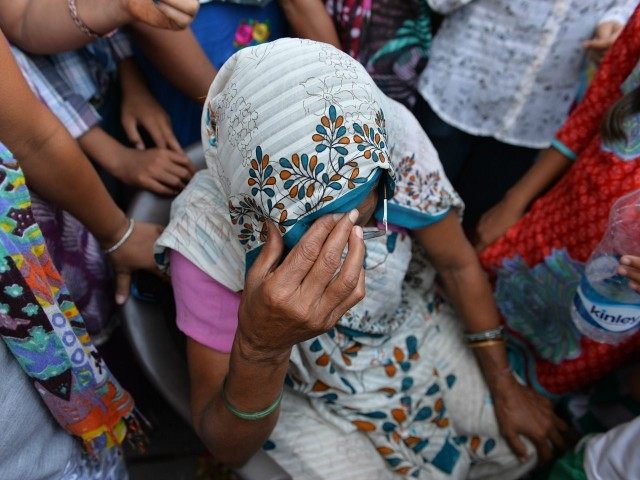An Indian man beheaded his sister-in-law after claiming to find evidence of her involvement in witchcraft and black magic.
The man, Uttam, accused his sister-in-law Dhandevi “of doing ‘jadu tona’ (witchcraft) on his brother, Thakur, who died on Feb. 5.” He claimed she tied a voodoo locket “on a tree outside their house, which he believed had resulted in his brother’s death.”
From Times of India:
Eyewitnesses have reportedly told the police that on Thursday Uttam again found a “taveez” tied to the same tree and he got into an altercation with Dhandevi, accusing her of again attempting to kill someone in his family by her witchcraft. Though Dhandevi kept denying, Uttam picked up a chopper and brutally hacked her over 15 times, dismembering her head from the neck.
He subsequently fled the scene. The police have registered a case of murder and launched a hunt for him.
Data from the state of Jharkhand shows people have lynched more than 127 women for witchcraft between 2012 and 2014.
“As per information provided by the NCRB [National Crime Records Bureau], a total of 26, 54 and 47 cases were reported under murder for witchcraft in Jharkhand during 2012, 2013 and 2014 respectively,” stated Minister of State for Home Haribhai Parathibhai Chaudhary.
Last August, a village lynched five tribal women “for allegedly practicing ‘witchcraft.’” Two victims included a woman and her daughter. The villagers decided to kill the women “after a 17-year-old youth died four days earlier.” He complained of stomach pains and “a sorcerer from an adjoining village had blamed his death on witchcraft.” From The Indian Express:
After they allegedly decided to “solve the problem for once and all”, some youths dragged 53-year-old Etwaria Kholkho out of her home, accusing her of being a witch. They demanded she name the other “witches” in the village, and Etwaria reportedly named Madni Kholkho (55), Jasinta Toppo (40), Tetri Kholkho (40) and her elderly mother, Ratiya Kholkho. One by one, each of these women was brought out in the open and beaten to death by the villagers, who battered them with sticks, bricks and stones. The killers allegedly disfigured their faces after killing them. Around 90 tribal families live in Kajiya Maraytoli. All of them bear the surnames Kholkho and Toppo. Some families are Christian.
A month later, another village killed five people, including two women, for allegedly practicing witchcraft. Their relatives stabbed them to death. Authorities have blamed greed and poverty on the crimes.
“In such circumstances, human misery in the form of death and disease is often attributed to witchcraft,” explained Anuja Agrawal, an associate sociology professor at Delhi University.
Agrawal added: “Often there are long-term animosities between the perpetrators and victims which translate into witch-hunt. Witch-hunt is a convenient mechanism to get rid of not only women but also entire families.”
People in the villages believe they can escape “their misery” if they hunt and punish witches. Studies have shown “land-grab and attempts to hold sway over local power structure are the driving factors for witch hunt.” They also use the witch hunt to “disinherit women from family property” or to silence those from lower social classes.
“While belief systems seem to help trigger violence, material factors are almost omnipresent in witch-hunt cases,” commented Madhu Mehra, the executive director of Partners for Law in Development.
Earlier this month, The Hindustan Times reported that Jharkhand districts will send the witchcraft cases to five fast-track courts.
“The courts will be under the judgeship of judges in the rank of additional sessions judge with jurisdiction within the local limits of the districts concerned,” declared BB Mangal Murty. “This has been done in consultation with the high court and the process of appointing judges and other logistics would start soon. Government’s objective is to expedite trial in all such cases and speedy disposal to send a strong message.”

COMMENTS
Please let us know if you're having issues with commenting.